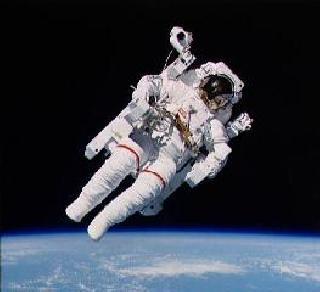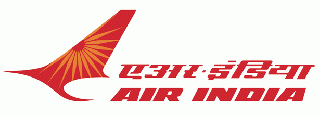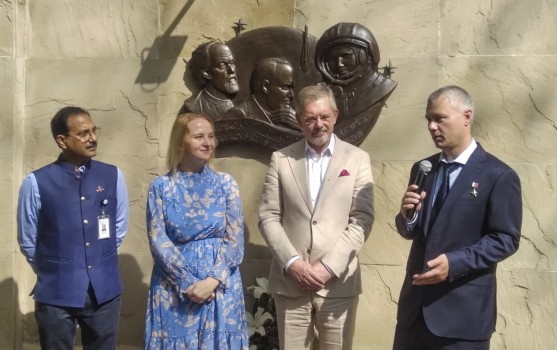
BEIJING (PTI): China will send its second woman astronaut into space tomorrow as part of its longest mission yet, as the country works towards building a Spacelab of its own to rival Mir, being run by Russia and the United States.
The Shenzhou-10 manned spacecraft will be launched on a Long March rocket at 5:38 pm local time tomorrow, China's manned space program spokesperson, Wu Ping told the media.
Wang Yaping, 35, the second woman to go into space after Liu Yang last year, will be onboard while the mission will be commanded by Nie Haisheng and will have Zhang Xiaoguang as the third crew member.
Yaping, who hails from a farmer's family from east China missed the chance last year to become the first Chinese woman to go to space.
An airforce pilot, she lost it narrowly to fellow pilot Yang, who was onboard the Shenzhou IX, June last. At 13 days, it was described at that time the longest space mission yet.
The spacecraft will travel in the space for 15 days and go through two docking tests with the orbiting space lab module Tiangong-1, one automatic and the other manual, Wu said.
This is the second such mission built China's first Spacelab which was expected to be fully ready by 2020 by which time Mir, which currently orbiting was expected to complete its mission.
This would make the Chinese Spacelab the only such station in the space.
Besides medical and technical tests, astronauts will give a lecture to a group of students on the ground inside the Tiangong-1, introducing the weightless condition, Wu said.
The Tiangong-1 space lab has been in a stable condition and ready for docking tests and receiving astronauts, she said.
"The launch ground and all control systems are ready.
Astronauts are in good and stable condition," she said.
The upgraded Long March-2F carrier rocket has been fuelled since Monday afternoon, Wu said.
The spacecraft will be launched from the Jiuquan Satellite Launch Center.
This mission aims to further test technologies of docking and supporting astronauts' stay in space and try new technologies related to the construction of space station, she said.
Food for astronauts, as well as waste processing facilities, will be improved, she said.
During the mission, the Chinese astronauts onboard the Shenzhou-10 spacecraft will teach students through a live video feed system while in orbit, Wu said.
It is the first time Chinese astronauts will give a lesson to middle and elementary school students while in orbit, she said adding that this would also make Wang Yaping, the China's first teacher in space.
Wang will talk about motion in a microgravity environment, surface tension of liquid, and help students better understand weight, mass and Newton's Laws, Wu said.
Wang will also demonstrate while lecturing in orbit, and interact with students and teachers on Earth, state run Xinhua news agency reported.
Also China and the United Nations Office for Outer Space Affairs (UNOOSA) will co-host an international seminar on manned spaceflight in Beijing in September, she said.
"We will be more open in carrying out extensive exchanges and cooperation with other countries during the construction and operation stages of the space lab and manned space station, and share our achievements with them, especially with developing nations," she said, while stressing China's commitment to making more contribution to global efforts to peacefully explore outer space.
The seminar aims to boost international exchanges of latest developments and following steps in manned spaceflight and promote cooperation in the area, she said.
She said since China's first launch of the manned space programme, the country has been actively cooperating with other countries in areas such as aerospace medicine, space scientific experiments, training and selections of astronauts, she said.
 Previous Article
Previous Article Next Article
Next Article










The Indian Air Force, in its flight trials evaluation report submitted before the Defence Ministry l..
view articleAn insight into the Medium Multi-Role Combat Aircraft competition...
view articleSky enthusiasts can now spot the International Space Station (ISS) commanded by Indian-American astr..
view article